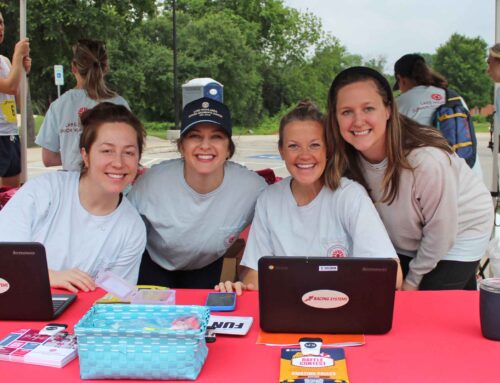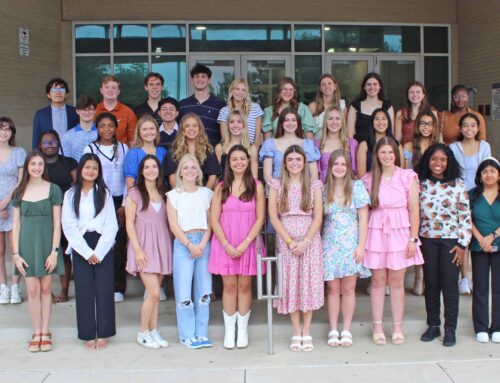If you live in Lake Highlands, by now you’ve probably received your August Advocate. One of the articles slated to run in the issue was dropped at the last minute, because it lost relevance to our neighborhood for the time being. The story was mostly about Project Reconnect, which assists former prisoners with housing. It was a Lake Highlands story because 20 Project Reconnect clients had been approved for homes at the Woodside Condominiums on Forest. We wanted to take a closer look at who those people would be, and what it would mean for the surrounding neighborhood. I learned a lot about the program and the people associated with it while researching and writing the piece, but because the plan was heavily opposed and, a few weeks ago, canceled altogether, we didn’t publish it.
In following the news since, it’s become clear that, while we managed to keep these particular people out, the fact remains that there are “hundreds of people who are ready for permanent supportive housing who’ve worked hard and have nowhere to go” — that’s what Mike Faenza from the Metro Homeless Alliance tells the Morning News, anyway. According to the article, the Dallas Housing Authority and MHA will attempt a different approach with neighborhoods near supportive housing projects, starting with education, which our city councilman calls “crucial” to making progress when it comes to housing the homeless and those in danger of homelessness.
In the interest of education about the population who utilizes supportive housing, especially those ex-convicts whom we fear so much, I’m posting the meat of our aforementioned would-be story after the jump:
Even as residents vociferously oppose supportive housing that would land parolees at a Lake Highlands-area condominium complex, the director of Dallas’ offender reentry initiative moves forward with plans to place clients …
Suanne Durham, director of Project Reconnect, the City of Dallas’ offender reentry initiative and housing program, is going about her job of finding qualified candidates to occupy 20 Department of Housing and Urban Development (HUD)-funded condominiums for paroled prisoners at Woodside.
“If everything goes as planned, once the HAP contract (a housing assistance payment agreement between the property owners and Dallas Housing Authority) is signed, we will need to lease within 60 to 90 days,” she says. “We need to be ready.”
So if the Dallas Housing Authority moves forward with the plan (IT DIDN’T), what will it look like? The most-feared facet of the proposal — according to widely circulated e-mails from the Moss Haven Moms — the placement of formerly incarcerated people in the 9300 block of Forest Lane, — might look something like this:
Billy Middleton, 58, is dressed in a pressed green polo shirt, wearing a Bluetooth headset and sweeping the walkway in front of his one-bedroom apartment. It’s not the spacious home he once shared with his wife, but it will do, considering the circumstances. Middleton served five years in prison on a drug-related offense. Upon his parole in 1994, he returned home and tried to get his life back together, but things didn’t go as planned. “My wife passed away, and I lost the house,” he says so softly that he is asked to repeat the statement.
Aging, with a criminal record and a disability (“I have a pacemaker,” he explains), he had trouble finding a job and ended up living on the street for more than a year. During a monthly parole visit, he learned about Project Reconnect, applied and qualified for permanent supportive housing at the south Dallas apartment complex where he has lived for two years.
Upon acceptance he had to take life-skills classes and attend group meetings, he says. He’s required to pay rent (on a sliding scale) and stay out of trouble. Project Reconnect members have a double layer of supervision and support — they’ve got both parole officers and Project Reconnect caseworkers keeping an eye on them, paying visits to their home and randomly testing for drugs. “He’s always coming around checking on us,” Middleton says nodding at Rod Caples, a caseworker who will also work with clients at Woodside Condominiums in Lake Highlands.
Caples says permanent supportive housing works. Those who apply for this program generally are tired, older, and hoping to stay out of trouble, he says. “There is less than 10-percent recidivism with our program. It is not easy reentering society after spending 5, 10 or 15 years in prison. A lot of people have family or friends who are willing to help them out at first, but down the road it gets tough. We offer short- and long-term help with transportation, finding jobs, getting the tools they need to reunite with the community,” Caples says.
Sometimes, literal tools, says Project Reconnect client “Troy Roy, Success Story” (that’s how he introduces himself).
“They gave me tools so that I could work setting up trade shows at the convention center,” says Roy, who just landed a full-time job as lead technician and trainer on an industrial appliance service team.
Roy, who attended Skyline High School and then Sam Houston State University, began dabbling in drugs as a student. “It was the worst thing I ever did,” Roy says. “Drugs don’t care who you are, once you are hooked, they will mess up your life.” At 33, his substance abuse problems landed him in prison for eight years. When he was paroled, he joined a 12-step recovery program and lived with his mother until Project Reconnect helped him get his own apartment. He says he is proud to have his 6-year old daughter visit him now, even though he has hardly any furniture, and he wishes other ex-offenders might get the chance he’s been given.
“I hope the people who live around [Woodside Condominiums] will open their minds. Some people really want to change and this program is really trying to help,” he says. “Everyone out there has made mistakes. Not everyone has been caught, but everyone has made mistakes.”
Murray Morgan, board member of the Woodbridge Homeowners Association argues that, though supportive housing might be good in theory, the Forest-Audelia area, which already suffers some of the highest crimes rates in the city, is not the place for it.
“We know that the Forest-Audelia blight is spreading … we cannot allow anything to come into the area that would further compound the problem,” he says. “That’s what this is about, not only supportive housing. These may be good programs, but not in this area; not at this time.”
Many share Murray’s sentiments. More than 700 of them have signed a petition in hopes of keeping supportive housing out of Lake Highlands. Murray and other opponents add that putting parolees in a high-crime area dampens their chances of rehabilitation and is not consistent with HUD requirements that permanent supportive housing offer a stable environment.
But Durham suggests that Project Reconnect clients are likely to be better neighbors than many already living in the area, and says that they have support that will help them deal with the environment.
“More than 800 people are released from Dallas County [jails or prisons] every month. You’d be shocked at how many live, without any support services, in this neighborhood already; we have clients all over the city, there is not an area that doesn’t have some criminal element, but the support and supervision helps them to avoid others who are involved in criminal behavior.”
District 10 Councilman Jerry Allen has tried to explain why having programs such as Project Reconnect on multifamily properties might benefit the surrounding neighborhood: The most problematic properties are run by absentee landlords who will allow anyone with a couple hundred bucks to move in, which is the worst-case scenario, the councilman says, because there is not a person to hold responsible for crimes and non-compliance with city code. Responsible owners don’t accept convicted criminals, so ex-cons flock to the apartments owned by unconcerned landlords. Here, unsupervised, they are more likely to fall back into drug abuse, criminal behavior and the like. The key to the supportive housing is that it provides a mentor and a caseworker to the residents, Allen says. “Here, unlike apartment complexes with absentee landlords, there will be someone to hold accountable for what happens there.”
Victoria Duarte, who manages the property where Middleton and Roy live says she was startled when she took the job and learned that 20 parolees called the complex home. But she eventually learned that these particular ex-cons were not likely to cause trouble. “Everywhere else I have worked, we didn’t allow people with a criminal record to move in. But they deserve a chance, and now I know each of the residents who are in the program, and they all seem to be good people.”
We know the following about Project Reconnect participants:
They are homeless or at risk of homelessness and are not guilty of sexual crimes or crimes against persons, program director Suanne Durham says. The particular clients interviewing for the first 20 openings at Lake Highlands’ Woodside Condominiums include 18 men and 2 females between the ages of 51 and 65. An additional unit at Woodside, should the permanent supportive housing plan move forward, will be occupied by a caseworker part time and otherwise used for meetings and counseling sessions. Durham adds that room could be used for outside agencies, nonprofits or church outreaches that might come in to support the clients, Durham adds.
And the idea of offering support to these potentially rehabilitated criminals is appealing to at least a few Lake Highlands residents, says Dabney Dwyer, who lives in the neighborhood near Woodside. Dwyer oversees external ministries at her Lake Highlands church, Episcopal Church of the Ascension. “I might be one of the few in Lake Highlands who supports the planned projects,” she says. “I see this as a potentially good thing and an opportunity to reach out to people who want help and who want a chance to lead a productive life, and to bring support services to an area that is in need of them. ”







